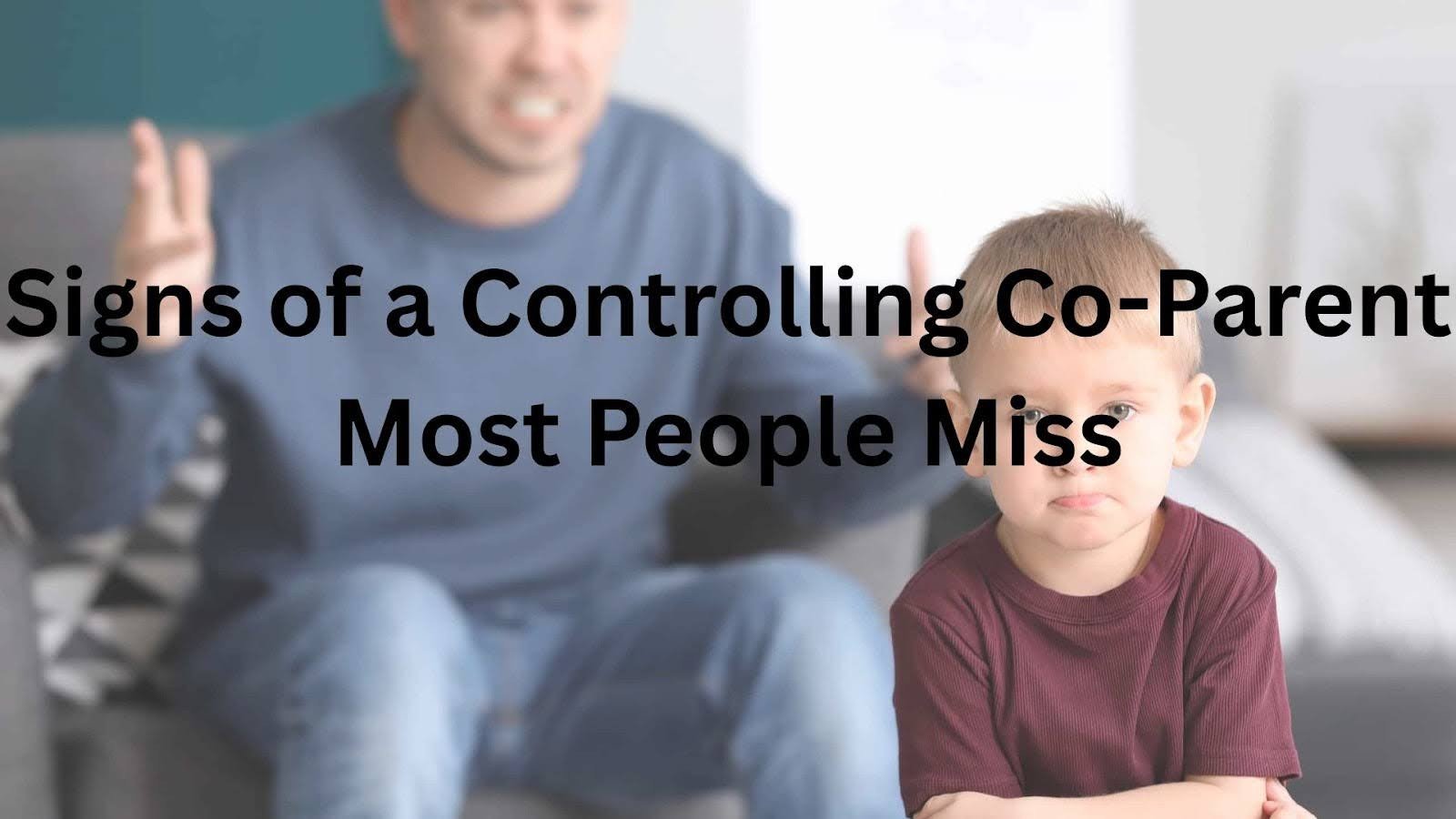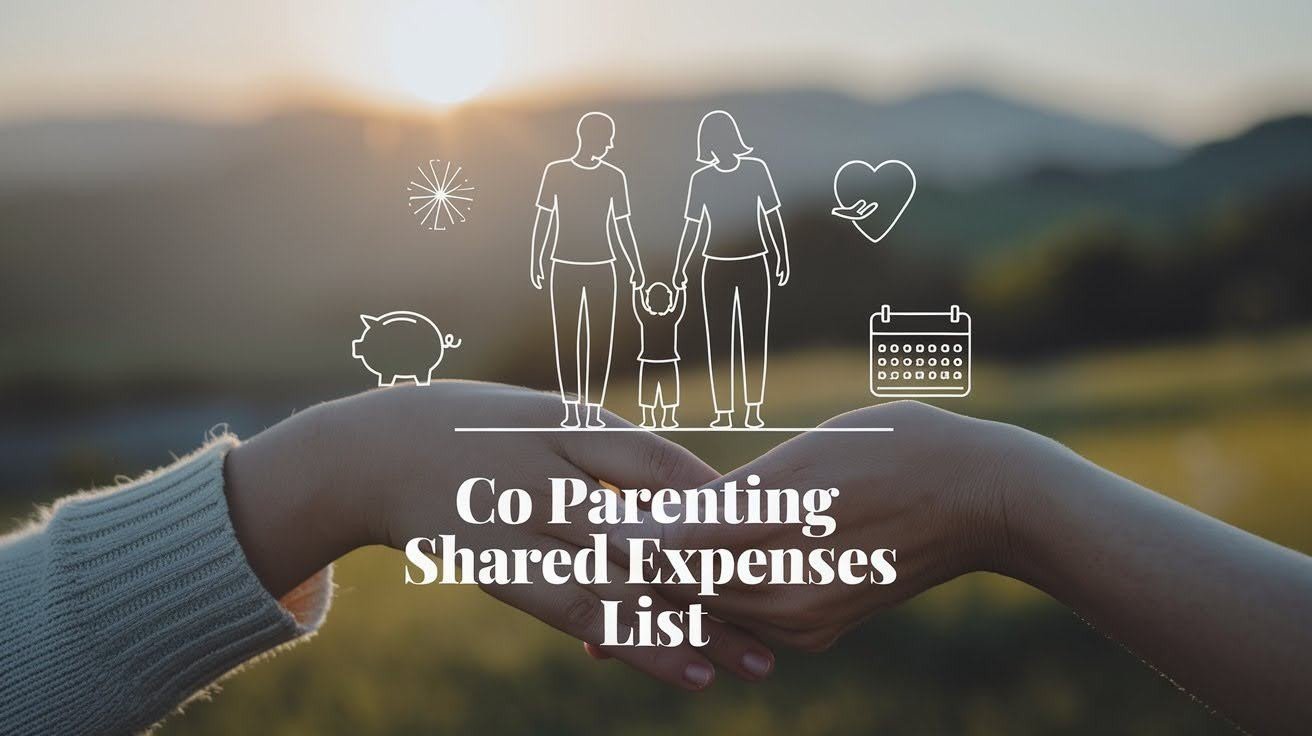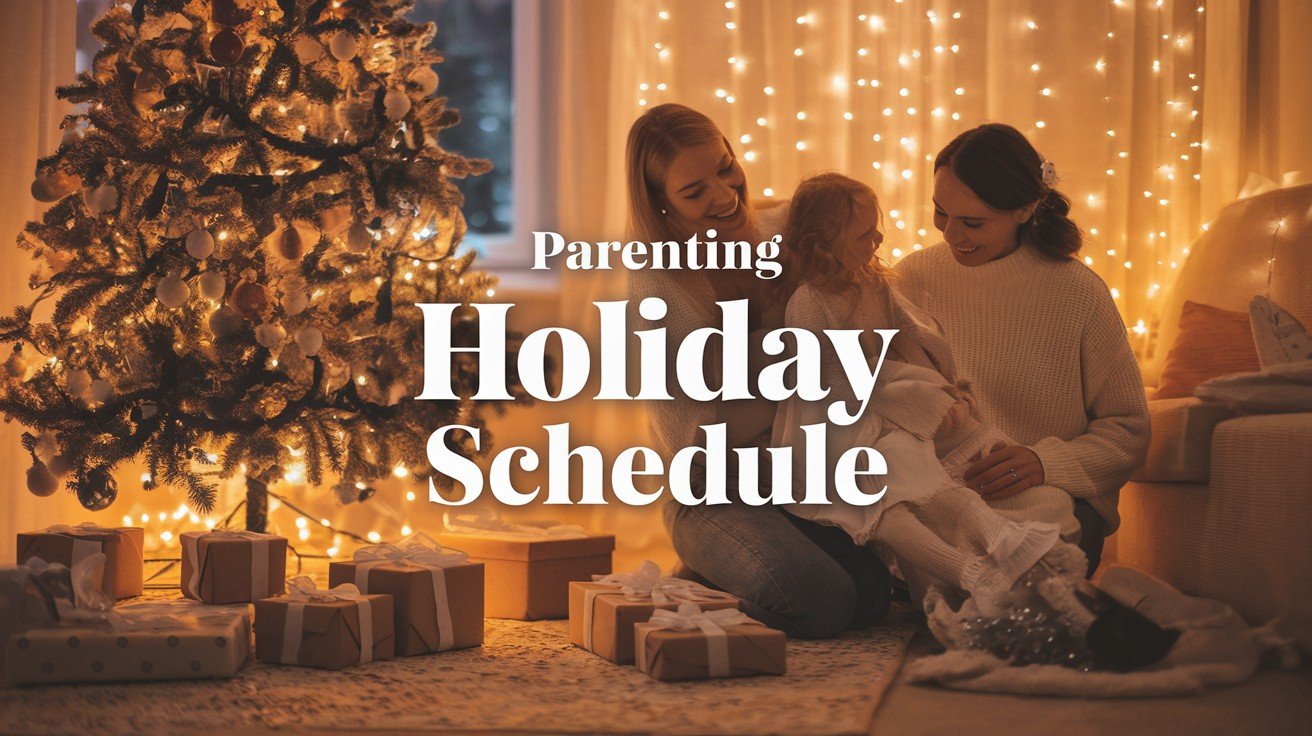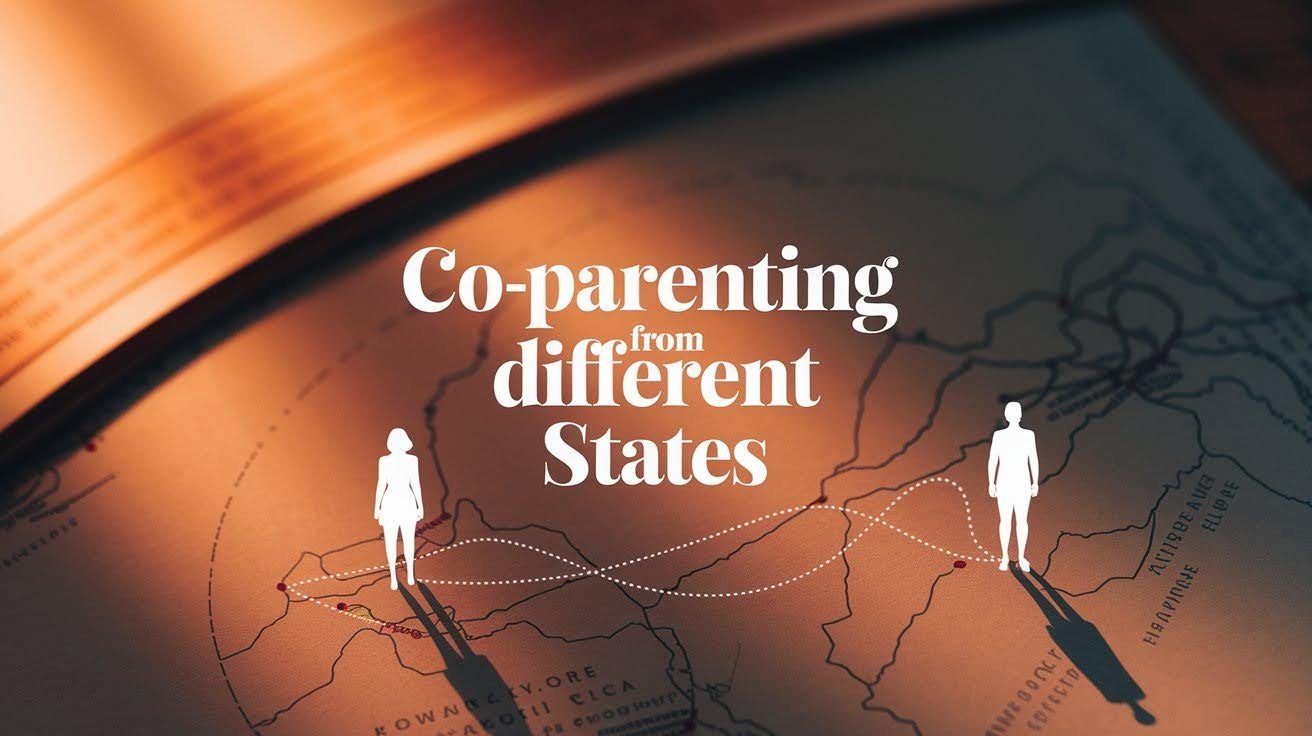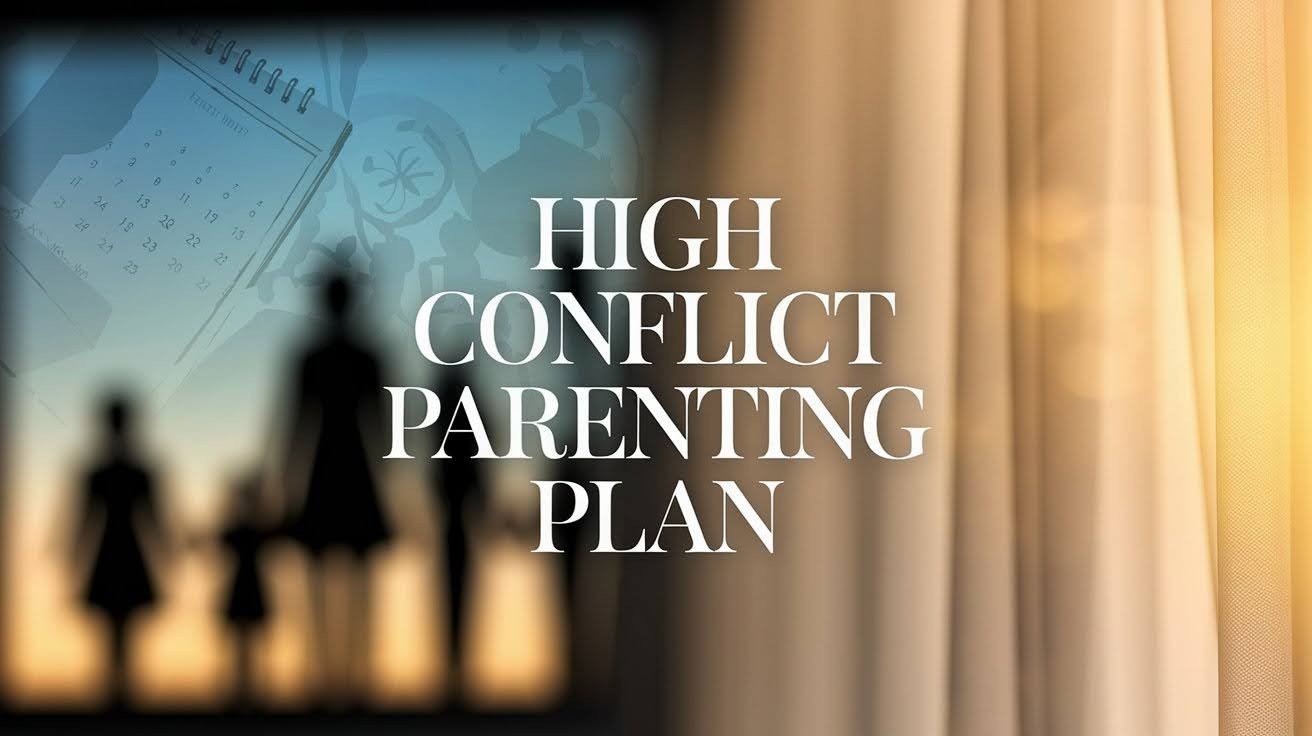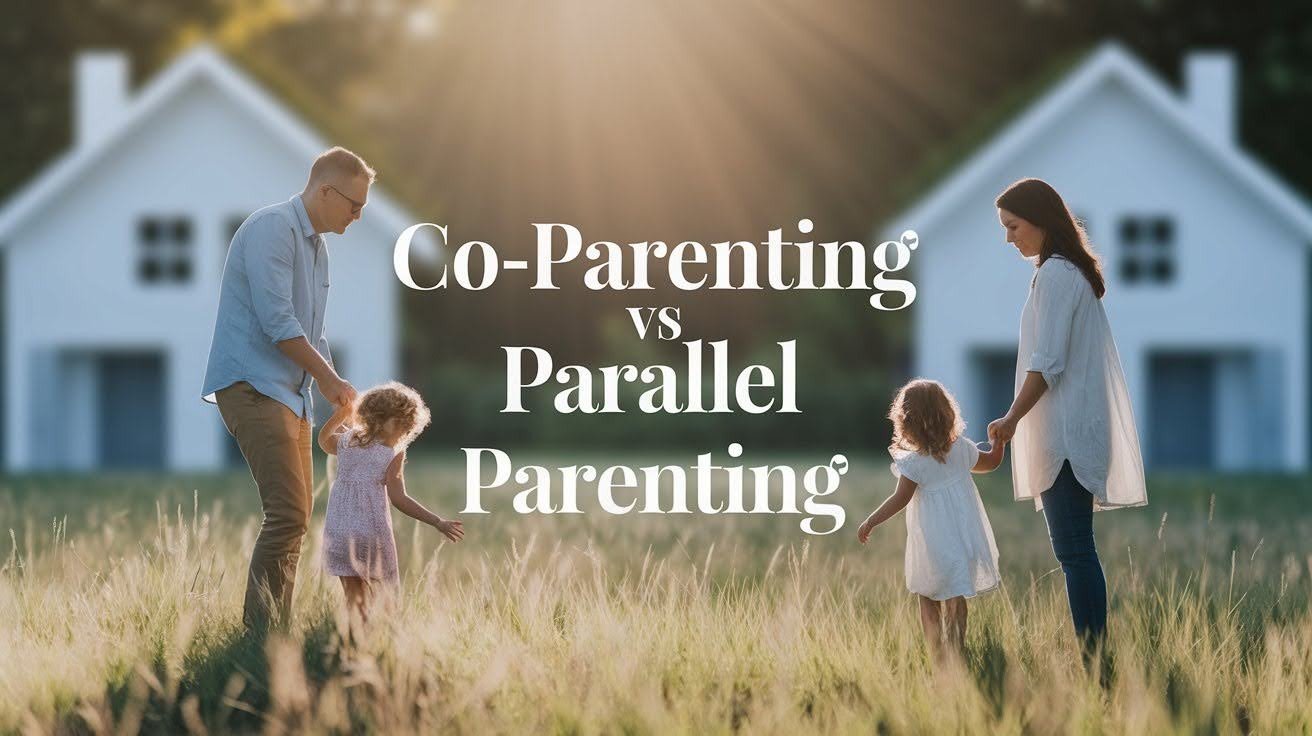Co-parenting after a breakup is hard. Both parents want what’s best for their kids, but sometimes one parent tries to control the other even though they are no longer together.
This kind of control can turn simple parenting choices into big arguments. It can hurt both you and your children.
The signs of a controlling co-parent are not always easy to see right away. Many parents think it’s just normal fighting about the kids. But there is a difference between healthy disagreements and controlling behavior that goes too far.
Any parent can act this way, mom or dad. When you know what to look for, you can spot these warning signs early. This blog will help you see them clearly.
What Is Coercive Control in Co-Parenting?

Coercive control is a type of abuse where one person tries to dominate and control another person’s life. It doesn’t always involve physical violence. Instead, it uses fear, threats, and manipulation to maintain power over someone.
This control doesn’t stop when parents separate. A controlling ex-partner often continues their behavior through parenting arrangements. They use the children and custody matters as tools to keep control over their former partner.
Normal co-parenting disagreements happen when parents have different opinions about their child’s needs. Controlling behavior is different. It’s when one parent consistently tries to make all the decisions, ignores the other parent’s rights, or uses threats to get their way. This behavior can seriously harm both the other parent and the children involved.
9 Clear Signs Your Co-Parent Is Using Control
Recognizing the signs of a controlling co-parent is the first step toward protecting yourself and your children. These behaviors often start small but can get worse over time. Here are the main warning signs to watch for.
- You feel like you have to agree to everything your co-parent suggests, even when you don’t want to. A controlling co-parent makes you feel like saying no isn’t an option. They might get angry, threaten you, or make your life difficult if you disagree with their plans or decisions.
- Your co-parent threatens to go to court if you don’t do what they want. Using legal threats as a way to control daily parenting decisions is a red flag. While court action is sometimes necessary, constantly threatening legal action to get their way is controlling behavior.
- Your co-parent tries to control what you do during your visitation time with your child. They might tell you where you can take your child, who they can see, or what activities are allowed. Your parenting time should be yours to decide, within reasonable safety limits.
- Your co-parent denies access to making important decisions or key information about your child, such as medical records or school progress reports. Both parents usually have the right to know about their child’s health, education, and well-being. Keeping this information from you is often a form of control.
- Your co-parent regularly interrupts your time with your child through excessive phone calls to assert their authority. While emergency calls are understandable, constant calls during your parenting time can be a way to maintain control and disrupt your relationship with your child.
- Your co-parent refuses to let you see your child unless you do what they want. Using access to your child as a bargaining tool is a serious form of control. Your relationship with your child shouldn’t depend on doing what your co-parent demands.
- Your co-parent makes false accusations against you to gain custody or visitation advantages. This might include lies about your parenting ability, lifestyle, or behavior. False accusations can be used to manipulate court decisions or make you afraid to stand up for your rights.
- Your co-parent refuses to pay support or contribute to half of the children’s expenses. While financial disagreements happen, consistently refusing to meet financial obligations can be a way to maintain control or punish you for not doing what they want.
- Your co-parent tries to turn the children against you and belittles you in front of the children. This behavior hurts both you and your children. It’s called parental alienation, and it’s a form of emotional abuse that can have lasting effects on your relationship with your kids.
These signs of a controlling co-parent can overlap and often happen together. If you notice several of these patterns, it’s important to take action to protect yourself and your children.
How Control Affects Your Children?

Children suffer when they’re caught between controlling co-parents. They might feel stressed, confused, or like they have to choose sides. Kids often blame themselves when parents fight, even when the conflict has nothing to do with them.
Signs that your child is being affected include changes in behavior, problems at school, anxiety, or reluctance to talk about the other parent. Some children become withdrawn, while others act out. They might also repeat things the controlling parent has said about you.
Long-term exposure to controlling behavior can affect how children view relationships in the future. They might think controlling behavior is normal or struggle with trust. Protecting your children from ongoing conflict isn’t always easy, but it’s one of the most important things you can do for their emotional health and development.
Setting Boundaries With a Controlling Co-Parent

Setting clear boundaries can help reduce conflict and protect your well-being. Start by limiting all communication to matters that directly affect your children. Don’t engage in arguments about your personal life or past relationship issues.
Consider using co-parenting apps that track all messages and keep records of your communication. These apps can provide evidence if you need legal help later. Many courts prefer parents to use these tools because they reduce conflict and create clear documentation.
When possible, arrange neutral locations for child handovers, like schools or public places. This can reduce opportunities for conflict or controlling behavior. Having written agreements about parenting arrangements can also help. When expectations are clear, there’s less room for manipulation or control tactics to be used against you.
When to Seek Legal and Professional Support?

Document controlling behavior as it happens. Keep records of threatening messages, missed visits, or other concerning actions. Photos, emails, and written notes with dates and times can be important evidence if you need to go to court.
Family mediation can help some co-parents work through their differences, but it’s not suitable when there’s controlling behavior or abuse. A mediator expects both parents to negotiate fairly, which isn’t possible when one person is trying to control the other.
Court intervention becomes necessary when your safety or your children’s well-being is at risk. This might include getting protective orders, changing custody arrangements, or requiring supervised visits. Legal aid services, domestic abuse organizations, and family law attorneys can help you understand your options and get the support you need.
How to Protect Your Own Well-being?

Dealing with a controlling co-parent takes a toll on your mental health. You might feel anxious, depressed, or constantly on edge. It’s important to recognize these effects and get help when you need it.
Build a support network of friends, family members, or other parents who understand what you’re going through. Support groups for people dealing with controlling behavior can be especially helpful. Having people who believe in you and support you makes a big difference.
Take care of yourself through regular exercise, adequate sleep, and activities you enjoy. Consider counseling or therapy to help you process your experiences and learn coping strategies. Your doctor, local domestic abuse services, and mental health professionals can all provide support and resources to help you manage the ongoing stress of dealing with controlling behavior.
Conclusion
The warning signs of a controlling co-parent include making threats, keeping you away from information about your child, and trying to control your parenting time. These behaviors are very different from normal co-parenting disagreements and can really hurt both you and your children.
If you see these red flags in your situation, remember that help is out there. You don’t have to deal with this problem by yourself. There are support services, legal help, and mental health professionals who can help you make things safer for you and your kids.
Your safety and your children’s well-being should always come first. Trust your gut feelings about what seems wrong or unsafe. Taking steps to protect yourself isn’t selfish it’s something you need to do. This creates a healthier home life for your whole family.
Frequently Asked Questions
Can Mothers Be Controlling Co-Parents Too?
Yes, controlling behavior can come from any parent, regardless of gender. Control tactics might look different depending on the situation, but the impact is harmful no matter who displays these behaviors.
How Do I Know If It’s Normal Disagreement or Control?
Normal disagreements focus on finding solutions that work for the children. Controlling behavior involves threats, manipulation, or consistently ignoring your parenting rights and your child’s needs.
Should I Tell My Children About Their Other Parent’s Behavior?
Focus on age-appropriate reassurance rather than criticism. Validate your child’s feelings without speaking badly about their other parent. Consider professional help if your child seems deeply affected by the situation.
What Evidence Should I Keep If I Need Legal Help?
Save threatening messages, document missed visits with dates and times, and keep records of any incidents. Work with a family law attorney to understand what documentation will be most helpful.
How Long Does It Take to Get Court Orders for Protection?
Emergency orders can sometimes be granted within days, while standard legal processes may take weeks or months. Contact local legal aid or domestic abuse services for help with urgent situations.

